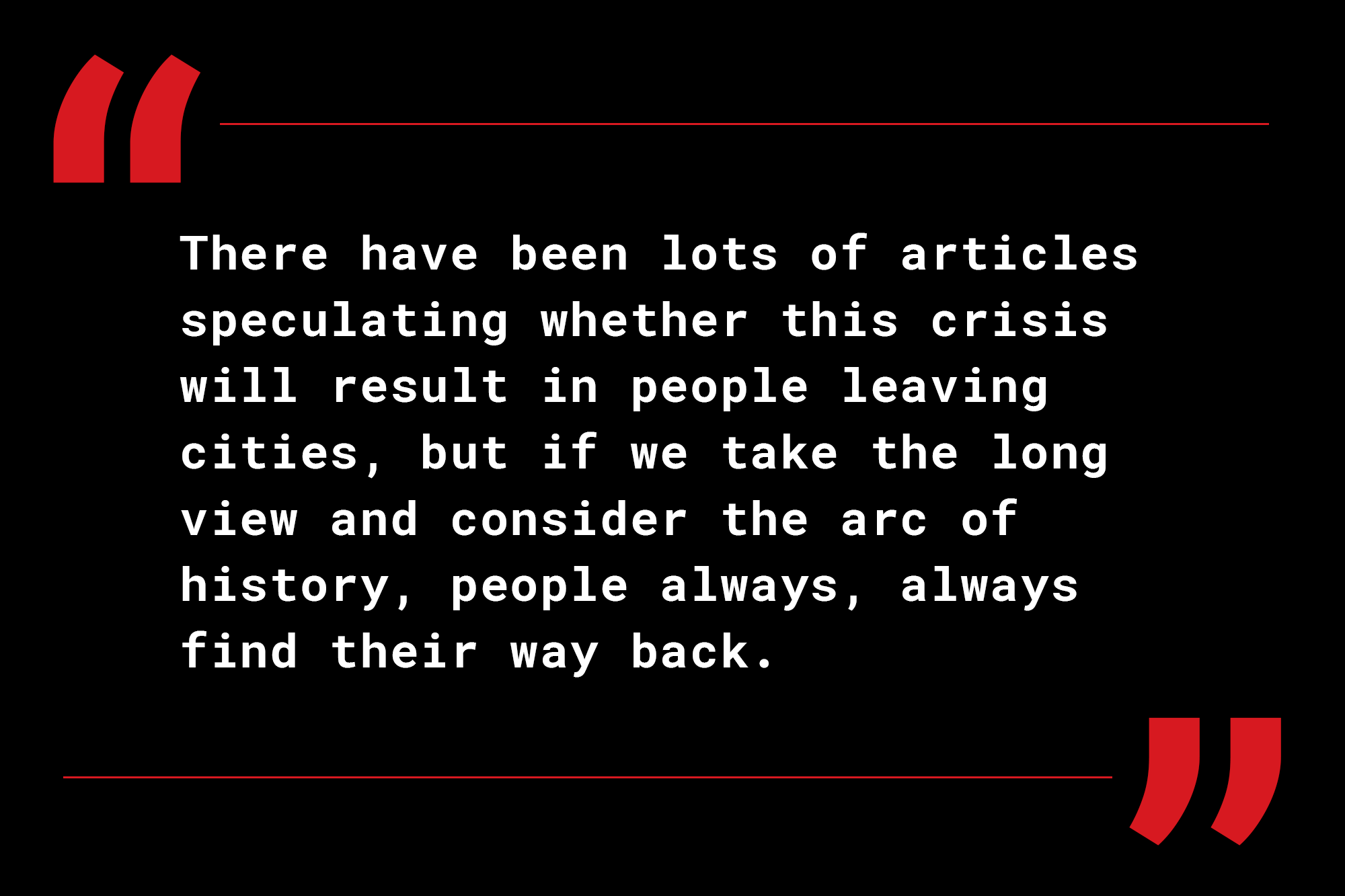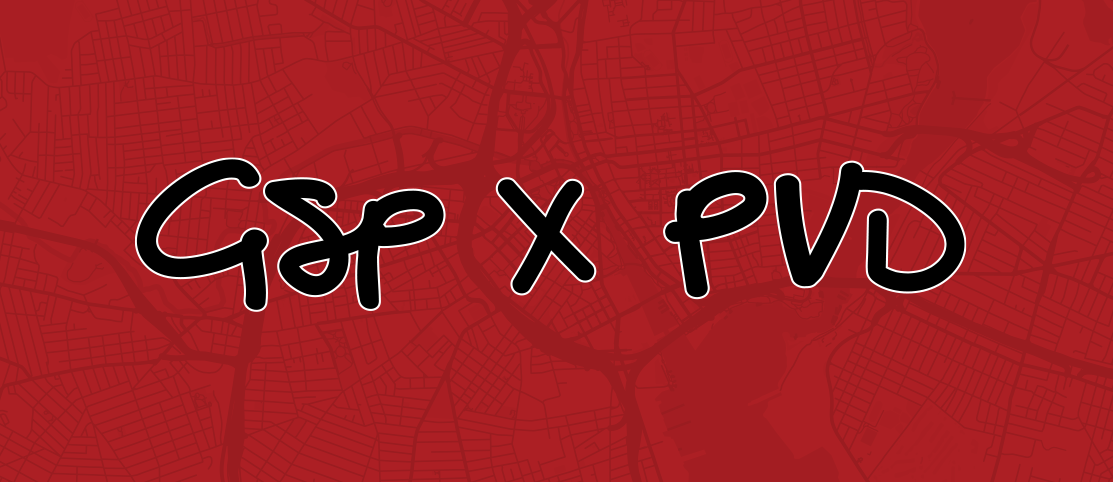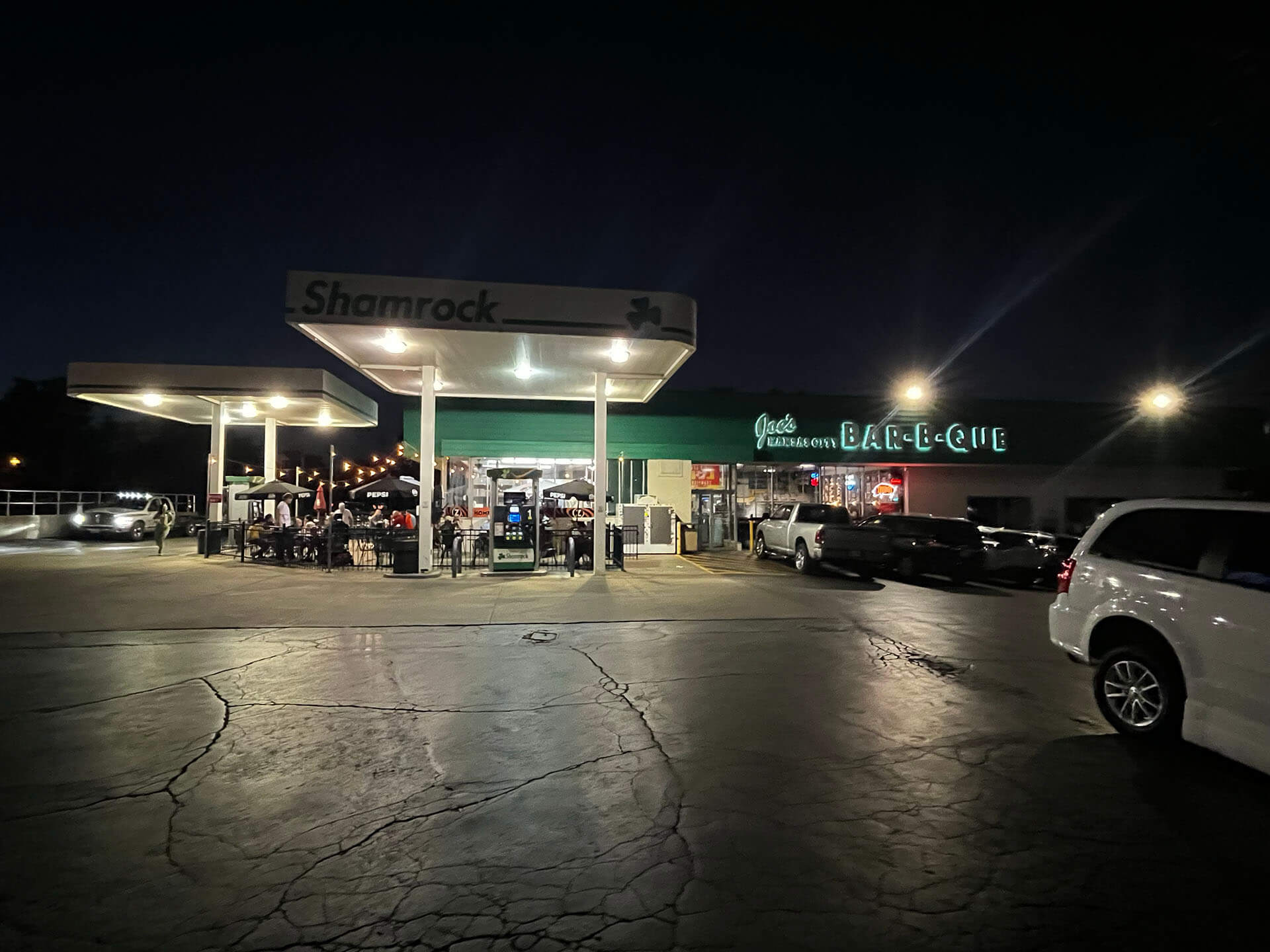GSP Q&A
Lately we’ve been spending a lot of time chatting with clients and colleagues about the effects that Coronavirus has had on their business and industry as a whole. Breaking from this pattern, we’re sharing perspectives from our own team in a quick Q&A.
GUSTAVO QUIROGA, NEIGHBORHOOD STRATEGY + COMMUNICATIONS
Who are you talking with to stay informed on the impact the virus is having on your own work?
I have been reaching out to a range of friends, colleagues, and collaborators across a number of fields to help me stay plugged in and informed during these times. I’ve felt that it’s been more critical than ever to expand the field of who I’m talking to right now since we can’t really pick up as much intel on the world through our own experiences. I’ve talked to small business owners and landlord/development clients, but also folks working in small business advocacy organizations, artists and creative professionals, people in government, directors of Main Streets organizations, and also folks working in housing and transportation advocacy to understand their views on how the challenges cities faced pre-COVID will change in the next phases of this crisis.
How will the Coronavirus affect public events and activations? What will it take to make these an effective marketing tool again? Will they ever be the same?
Ok, so here’s the brutal reality we need to tackle head-on: it’s extremely unlikely we’ll be gathering for public events anytime this summer. Not just large events, but even couple-hundred people sized ones. It’s hard to come to grips with that but I think it’s better to be honest about it. What that means is that smaller venues will likely come back on-line first (and even still, with reduced capacity); outdoor spaces that feel more safer and less cramped will become even more important; and operators, landlords, and other partners will need to get really creative about creating comfortable spaces with programing that meets both the mood of the public and the needs of people. Will public events ever be the same? You bet! But it will take time – and we might have to change the definition of what the “same” is…
JESSE BAERKAHN, NEIGHBORHOOD STRATEGY + RETAIL DEVELOPMENT
What was the process like for getting a loan for PPP? Was it difficult?
More stressful than difficult. We are super lucky to have Johanna on the team and our books are very well organized. Further, we have a great banking relationship with Cambridge Trust. Sadly many small businesses do not have these things (good bookkeeping + a good existing relationship with a strong local bank). The process reinforced my understanding of the intense inequalities in our political and economic system — the complexity and ambiguity of the PPP application process has left many small business out; and many such businesses are the ones with the most acute need right now. Knowing this is motivating Graffito’s desire to give back and support the local small business community as much as we possibly can in the next few months.
What is the most meaningful conversation you have been a part of since this crisis started?
One that stands out is a call I co-hosted with C.A. Webb of the Kendall Square Association on Saturday March 14th for restaurants in Kendall Square. It was so very intense and occurred a few days before any mandated shutdowns. The questions at issue for all the restaurateurs on the call was when to pull the trigger and close. And flowing from this discussion was one about when to and how to layoff entire staffs. I cried on this call. And much of what I heard on this call and throughout that weekend contributed to my second client update on March 15th and fueled the content/mission of our blog for the week of March 16th.
COREY ZEHNGEBOT, URBAN DESIGN + PLANNING
What has surprised you most about life during Coronavirus?
Most surprising is the fact that I now DRIVE EVERYWHERE, which I never used to do. These days, you can always get a parking spot, and because Boston is so compact I can get to most places in 10-15 minutes since there is no traffic! This actually creates some cognitive dissonance with the fact that the pandemic has only reaffirmed my identity as a committed urbanist. Because Charlestown (where I live) is a comparatively dense urban neighborhood, I’m able to walk out my front door and still see and speak to lots of people I know. The Navy Yard is teeming with people, but there’s plenty of room to spread out, and I feel more in touch with humanity.
Has your perspective changed about ongoing work since the coronavirus appeared? How have you been communicating that to clients?
Well, we’re definitely not bullish on public events as a public realm activation strategy in the near term! There have been lots of articles speculating whether this crisis will result in people leaving cities, but if we take the long view and consider the arc of history, people always, always find their way back. There’s something about cities that is irresistible and irrepressible. We just don’t know what the short to medium term ramifications are going to be, so we are advising our clients to be flexible. Science tells us that it may be awhile before things normalize.
DREW KATZ, CREATIVE SERVICES + BRANDING
What economic issues have you been following closely since the pandemic began?
Like so many of my colleagues, I’m worried about how restaurants will recover from the economic implications of the shutdown. If you’ve been paying attention to our blog, you’ll notice that I’ve been writing about the Paycheck Protection Program (PPP) and how poorly designed it is for the restaurant industry. I have so many friends that either own restaurants or work in the industry, which makes sense because my work has revolved around these places for years, having designed logos and websites for several of them. I’m also a frequent customer, it’s not unusual for my wife and I to be dining out 2-3 times a week. I’ve already heard about some venues that will never open again, and it’s extremely sad. Whether you designed a logo or spent countless hours at the bar socializing, we are all a part of that places identity, and it’s hard to see something we supported for so long disappear. Especially if it seems like there could be better ways to prevent it.
What are you looking forward to doing to help businesses get back on track after they reopen?
We’re thinking about ways that we can help retail establishments solve design challenges. There are a lot of tasks that might feel like a heavy load for owners, but are easier for us, like updating websites and menus, or taking new photography. A lot of this work will be done pro bono and we’ve actually already started helping some restaurants update their sites to better suit business during the coronavirus. We posted some recommendations on how to optimize websites from a user experience perspective and we hope more places will reach out if they need help now or when they reopen.
BROOKE PORTER, CREATIVE SERVICES + BRANDING
What design trends are you noticing during Coronavirus?
I’m definitely seeing an increase in human-centric, interactive design, especially when it comes to graphics displaying large amounts of dense information. In particular I’ve seen a few New York Times articles (like this, or this more recent one) that offer some excellent examples of how otherwise boring, confusing charts/graphs can be transformed to something more engaging and powerful. Also, now more than ever I’m seeing simplified, effective UI/UX take the stage, especially as businesses are rapidly changing their messaging. For websites, I’m noticing a big increase in homepage popups and banner alerts that normally would seem obnoxious, but now are so essential and almost expected.
Do you think designers should change the way they approach their service offerings for their clients? What do you recommend?
The short answer is yes, I do think there will and should be change. I strongly believe though that there’s room for humanity in business of all types. For us designers, now more than ever I think that means to be a little extra sensitive to (prospective) clients’ struggles. Flexibility is the name of the game, whether that means adjusting design contracts for more individualized scope of work and invoicing terms, or maybe taking on some selected pro-bono work. While these times are anything but “business as usual,” we should look towards the future of when things will return to a new definition of “normal,” and consider what long-term creative relationships will look like between designers, vendors, and clients. Now is a time to plant the seeds of those working relationships and see how they grow in the time to come!
DAVE DOWNING, RETAIL LEASING + DEVELOPMENT
What are tenants saying about the PPP? Are they able to get loans? Do they think it’s fair?
Tenants are saying the PPP is helpful, but not enough. I’d say 90% of the Tenants I’ve spoken with have had their PPP applications approved and monies secured. Most of them have almost no clarity on forgiveness of the loans and have concerns about hiring and then having lay folks off months from now. It’s the wild Wild West.
What have you been doing to support your favorite retail and restaurant establishments?
I’ve been purchasing gift cards, apparel and food (if offering delivery or take out) and connecting them with information/resources to help weather the storm.
ANGELA VANARSDALE, RETAIL LEASING + DEVELOPMENT
What are you reading to stay informed on the coronavirus?
Generally watch the news, read the papers, and listen to the Daily podcast to get up to speed. In terms of staying informed as it relates to our line of work – I read emails, texts, and signs in store/restaurant windows. Trying to have open and direct lines of communication with our clients, cooperating brokers and friends to see how they’re navigating these times; the good and bad – because there are some great success stories out there too. It really is a case by case basis, so the information for tenants and landlords varies.
How are landlords reacting to the idea of rent abatements or deferments. What sort of new deal structures are you seeing emerge?
Overall I think most landlords and tenants have either created or solidified a true partnership through this. The feedback on rent abatement and/or deferment requests has been positive, and in some cases landlords have proactively offered it up. The ramp up period for tenants and their future success post COVID-19 will ready be a case by case basis, so it’s difficult to say that there would be blanket deal terms that will change across transactions going forward, and beyond COVID-19. What we can safely say is that the market will be dictated by the tenants for the foreseeable future as long as landlords don’t want vacancies, and that there will almost certainly be pandemic/unforeseen business interruption protection language in leases going forward.
- Angela VanArsdale
- Brooke Porter
- Coronavirus
- COVID-19
- Dave Downing
- Drew Katz
- GSP
- Gustavo Quiroga
- Jesse Baerkahn
- Q&A
- Team




